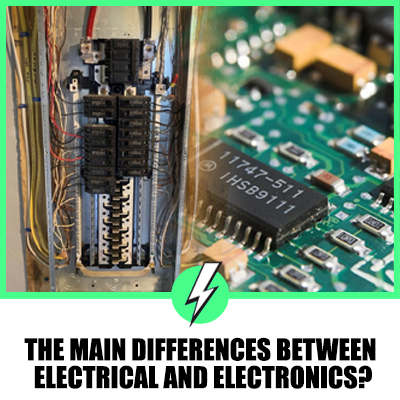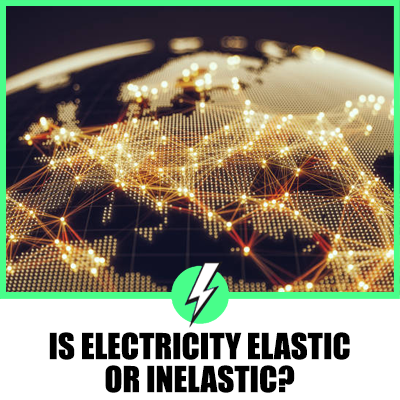Do Electricians Have Job Satisfaction?
If electricians are a lower-ranked industry in terms of being happy at work, can you assume that you will get an excellent job from an electrician working in your home?
Although a survey states electricians are one of the lowest trades for being happy, another says 63% of electricians enjoy the job! Most electricians enjoy the job and are proud of the work they produce. Electricians are highly trained and work to strict standards giving you the best work.

Contents
Is being an electrician a good career for the future?
Electricians have excellent prospects for the future, and being an electrician is almost like being bulletproof in terms of job security.
There will be a shortage of 15000 electricians over the coming years, and the industry is trying to fill the void by recruiting from all sectors.
There is an uptick in female electricians as the NICEIC tries to recruit more females into the profession.
As demand increases for electricians, the salary for employed electricians increases due to demand.
Combining a high salary and job satisfaction must make the electrician the number one trade to get into.
Why is there a shortage of electricians in the UK?
Out of all the trades, the electrician is the hardest one to get into, not because the jobs are not available but because of the candidates’ quality.
To become an electrician, you will need to leave school with a minimum of 5 GCSE passes, with the lowest grade being a C. The GCSEs must include maths and English.
Once you have been accepted onto an apprenticeship course, you will attend college one day every week for theory work and then train alongside a qualified electrician learning the job.
The apprenticeship is for 4 years. At this point, today’s get quick rich youths to walk away from being an electrician to find something that will pay more in the short term.
Are more people becoming electricians?
No, despite the industry’s average growth being 9% year on year, there is still a need to recruit quality candidates to the industry.
However, the good news is that older mature students are coming into the industry and bringing other life skills that add diversity.
There are two main ways to become an electrician. The first is to gain an apprenticeship; apprenticeships are open to all ages and are possibly the best way to get into the industry and learn a trade.
The second method is to join through a trade centre. You will train on day release or night school to learn the basic skills of electrical work.
However, you will need to find a way of completing your practical skills if you are to complete the recognised course.
Will robots replace electricians?
It’s not really a crazy question as technology moves at a rapid pace. But, the answer is no. Electricians will not be replaced by robots or any other form of automation.
Electricians and other tradesmen work in a unique environment that would make any industry automation virtually impossible.
Can you imagine a robot coming to your door with a test meter and screwdriver? It’s a million years away, so don’t give it a second thought.
What are the pros and cons of being an electrician?
All the trades have pros and cons, but the electrician will have more pros than cons!
Pros
- It’s a worthwhile profession that is respected
- Once qualified, the potential to earn more money than any other trade is higher
- Being an electrician rarely are two days the same. The job is rarely tedious
- You don’t need a degree to be accepted onto a training course or become an apprentice.
- You get paid while training on an apprenticeship
- No student loan debt
- Unrivalled job security
- Becoming self-employed is easy
- Always learning something new
Cons
- Training time is 4 years, and a further 2 years before you can apply to be accredited
- The hours can be long and odd when working on call
- Physically and mentally demanding at times
- The inherent danger of electric shock and injury
How stressful is being an electrician?
Once qualified and you have become used to some of the unsociable working hours, the job of an electrician is not that stressful.
Of course, stress can be measured in many ways, but in terms of being an electrician, the most stress is a protracted fault finding process that can be complex.
It goes without saying that the electrician is confronted with danger from time to time, and the risk of electric shock is real.
However, most of the time, circuits are isolated, so the risk of electrocution is mitigated.
Do you need to know algebra to be an electrician?
No. The more maths you know, the better it will be, but it’s not essential, and during your training modules, you will be taught all of the formulae you need to know to be a good electrician.
Most electricians get by with basic arithmetic and a calculator to develop any calcs needed while on the job.
Are electricians well paid?
Yes. Being an electrician, you will be the highest-paid trade. If you love your job and the diversity it brings, you enjoy the job satisfaction and wait until you know that the average spark earns 50K plus yearly.
How much does a self-employed electrician make in the UK?
It’s really up to the self-employed electrician. You will need to build your business by having decent websites and industry contacts.
You will need to get out and about to sell your services to places such as estate agents who are dealing with landlords and tenants.
Once you have established your business, earnings can be as high as 100k yearly and more if you wish to take on other electricians, so you become the employer.
There are reports of some electricians taking extended holidays as soon as they hit the VAT threshold of 85K.
Earning is only limited by your own desire and imagination.





